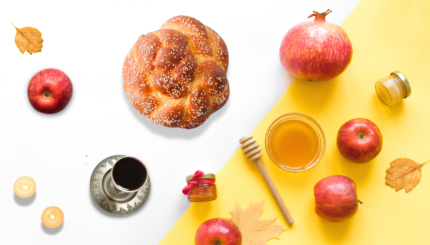
Drink Wine.
Yes, the rabbis of the Talmud gave you permission to get your drink on. Or, at least, to drink 3.07 ounces, the minimum amount of wine that the sages required in order to say kiddush on the Sabbath (although more is welcome, if you’re in the mood).
The Ten Principles |
| 1. Avoid technology. 2. Connect with loved ones. 3. Nurture your health. 4. Get outside. 5. Avoid commerce. 6. Light candles. 7. Drink wine. 8. Eat bread. 9. Find silence. 10. Give back. |
Drinking wine is one of just two commandments associated with the Sabbath–to remember the day and to observe it. Kiddush is meant to fulfill the “remember” part. Traditionally, before the wine is drunk, a paragraph from the Torah is sung–the part in which God, having finished the work of Creation, rests.
But why is wine specifically linked with remembrance? According to the medieval philosopher Maimonides, it’s a way of creating a sense-memory. By both beginning and ending the Sabbath (and other holidays) with something pleasant, we associate the metaphysical act of sanctifying the day with a positive physical taste–and with the mental sensation of getting buzzed.
With your help, My Jewish Learning can provide endless opportunities for learning, connection and discovery.
The medieval work Sefer Hahinuch goes a step further, suggesting that wine helps to deepen the experience of Sabbath itself. “We were commanded to perform this deed [blessing the Sabbath] with wine, for a man’s nature is greatly stirred by it, as it sustains and gives joy. And I have already told you that to the degree that a man is moved and inspired by his deed, so is he always influenced.” In other words: personal and spiritual transformation can be achieved through being under the influence.
Though religion is often associated with asceticism, Judaism is no fan of the proverbial wagon. The Talmud asserted that “there can be no celebration without meat and wine.” Today, this might disturb the vegetarian and the straightedge amongst us–but we can all raise a glass to the sentiment.
Kiddush
Pronounced: KID-ush, Origin: Hebrew, literally holiness, the blessing said over wine or grape juice to sanctify Shabbat and holiday.
Talmud
Pronounced: TALL-mud, Origin: Hebrew, the set of teachings and commentaries on the Torah that form the basis for Jewish law. Comprised of the Mishnah and the Gemara, it contains the opinions of thousands of rabbis from different periods in Jewish history.
Torah
Pronunced: TORE-uh, Origin: Hebrew, the Five Books of Moses.


